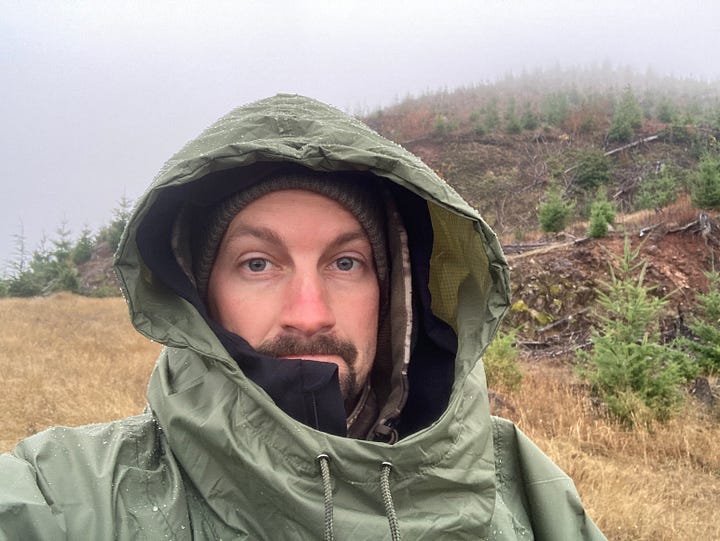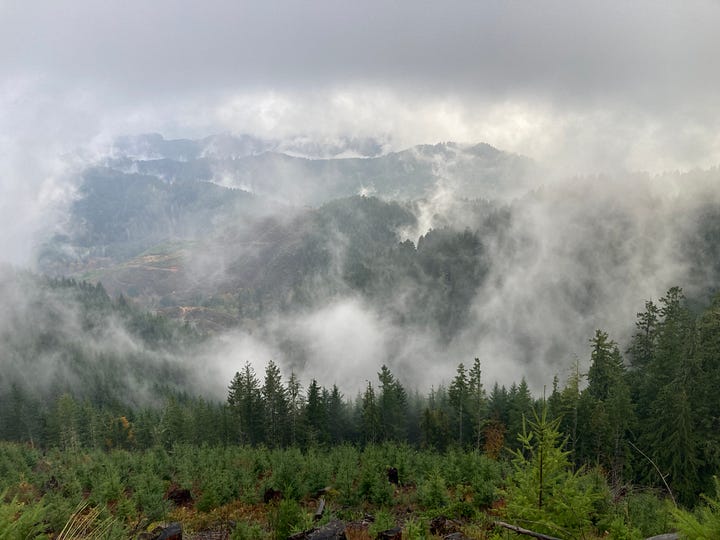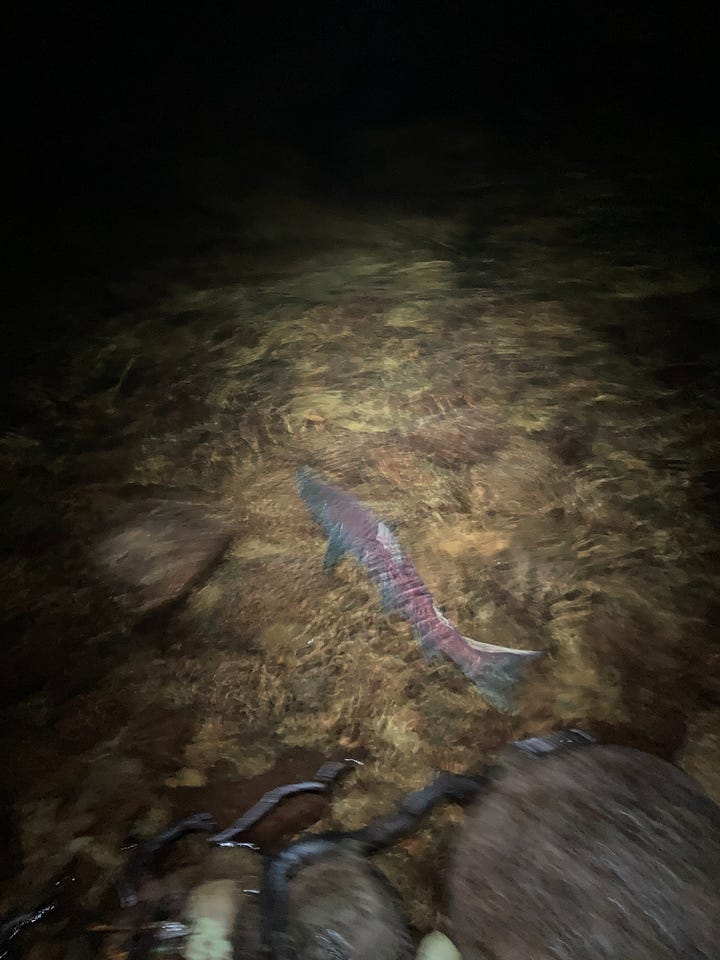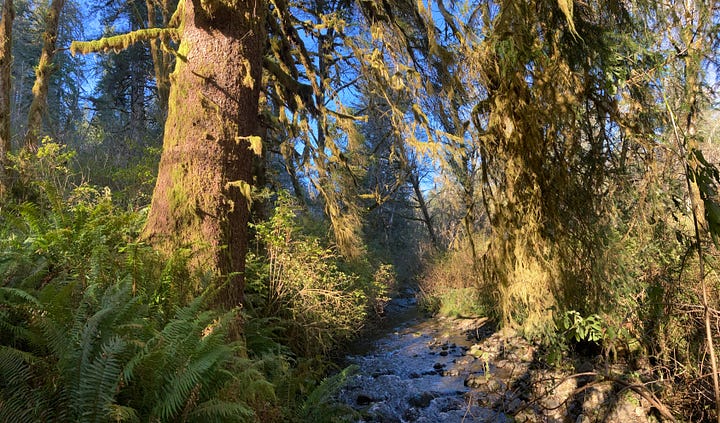Clearcuts and Salmon in the Oregon Coast Range
98% of Pacific Salmon are gone. We've got work to do.
Earlier this month I spent a week in the coastal mountains of Oregon, where industrial logging has replaced old-growth forests with monocrop plantations, released vast quantities of greenhouse gases, eviscerated biodiversity, and harmed rivers and streams via siltation and other forms of habitat destruction, water temperature increases, and chemical pollution.
On this trip, I camped a few feet from a salmon stream and was kept up by the sounds of Coho heading upstream to spawn — four fish. Just four.




The rivers and streams of Washington, Oregon, and California are in crisis. Where salmon and steelhead have not already been driven extinct there are only small remnant populations holding on.
In the Western contiguous United States, four hundred and six salmonid populations have already been entirely destroyed, and one-third of remaining populations are listed under the endangered species act. Overall Pacific salmon numbers have declined by 98-99%.
The forests and rivers of the West need defenders. We have work to do. If salmon are going to survive, four things need to happen:
Protect the forests. Industrial logging needs to stop.
Protect the water. The dams must come down. Floodplains, wetlands, and estuaries must be restored and allowed to flourish. Toxic chemical pollution from stormwater runoff and forestry spraying must be stopped.
Protect the fish. Commercial fishing must halt. Salmon farming must be stopped.
Protect the cold. Global warming must be stabilized and reversed.



I am recently retired from the BC Forest Service. I conducted inspections on logging, road building and road maintenence for 20 years. My zone was central Vancouver Island and many of the areas I worked in connected to what was at one time very productive salmon streams including the Nitinat River, Klanawa River and the Sarita River watersheds. The legislation regulating this work is almost useless. I documented siltation going into streams from roads and landslides all the time. In many cases we have roads running parallel to major salmon streams and there is no appetite to rehabilitate and move these roads.
Since retiring I have talked to co-workers. They have told me there are almost no inspections anymore and the industry operates on "Professional Accountability" and "self reporting". The day before I retired an Assistant Deputy Minister called me and asked for feedback on what the organization could do better. When I brought up the legislation and the issues he said "thats not our department ". I was told when working at one point to stand down on a landslide investigation and to quit picking on the companies.
In short we fully understand the impacts from Industrial Logging and the damage that is happening but it is simply not being addressed. Instead the Ministry produces web pages talking about what a great job they are doing a great job protecting watersheds, fish and fish habitat. In my mind it was a complete snow job.
Thanks for your hard work Max in letting people know.